Business Industry Capital
|

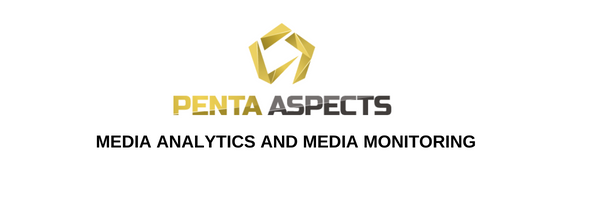

|
Bulgaria
|
|  | |
|
BNB Exchange Rates
(30.01.2026) |
|---|
| |
GBP |
|
1.15450 |
|
| USD |
|
0.83560 |
| CHF |
|
1.08910 |
| EUR/USD |
|
1.1968* |
|
ECB exchange rate |
|
Basic Interest Rate |
| |
as of 01.12 |
|
1.81% |
|
|
|
 |
Financial news |
 |
A forecast for accelerated growth in Bulgaria's public debt, combined with the risk of fiscal policy easing and weak controls on corruption, are among the main highlights of the regular review of the Bulgarian economy by the rating agency Moody's. According to the analysis, Bulgaria's credit profile reflects a low but growing public debt burden and a high debt-servicing capacity. Membership in the European Union (EU, rated "Aaa" with a stable outlook) and the eurozone supports institutions and the strength of governance, although controlling corruption remains a significant challenge, Moody's notes. The credit agency points out that the adoption of the euro from January 1, 2026 is positive for Bulgaria's credit rating, but the main benefits, such as the elimination of currency risk for euro-denominated debt, are already reflected in Bulgaria's "Baa1" rating. An immediate risk resulting from political instability is the risk of difficulties in implementing the reforms and investment targets under the PPA by the August 2026 deadline, according to the agency. Moody's predicts that two-thirds of the remaining funds under the fourth and fifth tranches, which amount to about €2.5 billion (just over 2% of GDP in 2026), will be disbursed. The agency expects the level of government debt to gross domestic product to increase to over 30% in 2026, gradually reaching 37% by 2030, up from around 24% in 2024. Source: Duma
The production of energy products in Bulgaria decreased in November 2025 compared to October, the National Statistical Institute (NSI) announced. The most serious decline was recorded in propane-butane mixtures, which decreased by 40% to 3 thousand tons. The production of motor gasoline decreased by 39.1% to 84 thousand tons, diesel fuel by 35.2% to 173 thousand tons, electricity by 12.8% to 2,769 GWh, and solid fuels by 2.2% to 1,564 thousand tons. Natural gas production remained unchanged. On an annual basis, compared to November 2024, production also registered a decline. Propane-butane mixtures decreased by 50%, diesel fuel by 30.8%, solid fuels by 23.4%, electricity by 7.9%, and motor gasoline by 3.4%. Natural gas remained at the previous year's level. In November, energy product deliveries saw an increase in propane-butane mixtures by 17.6% to 40 thousand tons, in natural gas by 14.2% to 265 million cubic meters, and electricity increased by 1.5% to 2,985 GWh. At the same time, deliveries of motor gasoline decreased by 16.9% to 49 thousand tons, diesel fuel by 10.9% to 229 thousand tons, and solid fuels by 0.7% to 1,627 thousand tons. Compared to November 2024, supplies of propane-butane mixtures increased by 14.3%, while solid fuels decreased by 22.3%, motor gasoline by 22.2%, natural gas by 8.6%, electricity by 8.3%, and diesel fuel by 5.4%. Last year, monthly electricity production increased by 8.1%, and solid fuel production increased due to increased consumption for electricity production. Source: BTA
The price of 1 hectare of agricultural land in Bulgaria is below the average for the European Union, but the rent for 1 hectare exceeds the average rent for the EU. This is shown by Eurostat data for 2024. In 2024, one hectare of arable land cost an average of 8,189 euros in our country, while the average price for the EU was 15,224 euros. At the same time, the rent for arable land in the EU is estimated at an average of 295 euros per hectare, while in Bulgaria it is 303 euros. In 2024, the price of agricultural land in our country increased by 6% compared to the previous year, almost as much as the average growth for the entire EU. The most expensive is arable land in Malta (201,263 euros), followed by the Netherlands (96,608 euros) and Portugal (76,556 euros). The data for Malta reflect the limited availability of agricultural land on the island, which pushes its price up. The Netherlands also has the region with the most expensive agricultural land - Flevoland, where one hectare costs 187,109 euros. The cheapest arable land in 2024 was in Latvia (4,825 euros per hectare), Lithuania (5,590 euros) and Slovakia (5,823 euros). Eurostat data for 2024 lacks information for Germany and Italy. Eurostat also shows the price of pasture separately. In Bulgaria, one hectare of permanent grassland is 1,877 euros per hectare, which is the lowest value in the EU. Not all land is owned by the farmer who cultivates it. Many owners rent out their land as a short-term or long-term business solution. The amount of rents in individual EU countries also varies widely. Within the EU, the average price for renting arable land was €295 per hectare in 2024. Renting one hectare of arable land in 2024 was most expensive in the Netherlands (€941 on average), followed by Denmark (€580) and Greece (€509). The lowest rent was in Slovakia (€69 on average), Croatia (€76) and Malta (€92), the latter reflecting a government-imposed restriction in the Agricultural Lease Act on subletting. With an average rent of €303 per hectare, Bulgaria is above the EU average. It is striking that the amount of rent in our country has been decreasing in the last three years. For example, in 2022, the average rent for fields in our country was €313 per hectare, and a year later in 2023 it was €312. Source: Sega
 |
Companies |
 |
The European Bank for Reconstruction and Development (EBRD) has invested €295 million in Bulgaria in 2025, spread across 17 projects. This represents an increase compared to the €272 million invested in 2024 and significantly exceeds the average annual level of investment over the past five years. “Bulgaria’s economy continued to show resilience and ambition in 2025, and the EBRD’s investment performance reflects the country’s accelerating transition to a greener, more competitive and more innovation-driven economy,” said Manuela Nessel, Head of the EBRD for Bulgaria. The bulk of the investments – 88% of the total volume – are aimed at projects related to climate change mitigation, energy transition and the development of sustainable infrastructure. The projects signed in 2025 are expected to reduce carbon dioxide emissions by 552,816 tonnes per year. Among the initiatives supported are investments in energy storage systems through batteries and photovoltaic parks, with the EBRD also mobilising additional financing of €169 million from local and international investors. The Bank remains strongly committed to supporting the private sector, with all new investments in Bulgaria directed towards private companies. 98% of the EBRD’s active portfolio in the country is business-oriented. Around 30% of the portfolio is invested in equities and local private equity funds across sectors. In 2025, the EBRD has invested an additional €33.4 million in equity and venture capital, mainly through regional funds, to enhance the innovation capacity, competitiveness and growth potential of the Bulgarian economy. The results for Bulgaria are part of a historically strong year for the EBRD, which invested €16.8 billion in its countries of operation in 2025, up from €16.6 billion in 2024. This included a record €2.9 billion in Ukraine, up from €2.4 billion a year earlier. The EBRD operates in Eastern Europe, Central Asia, the South-Eastern Mediterranean and Sub-Saharan Africa. Russian energy giant Lukoil announced that it has signed an agreement with the American investment company Carlyle Group for the sale of LUKOIL International GmbH, a 100% subsidiary that holds the group's international assets. According to an estimate cited by Reuters, the value of the assets amounts to about $22 billion (approximately €18.4 billion). Carlyle Group manages assets worth $474 billion, distributed across three main business segments and over 660 investment vehicles. The company is based in Washington and its shares are traded on the stock exchange. The deal does not include Lukoil's assets in Kazakhstan, which will remain the property of the Russian company and will continue to operate under existing licenses. Meanwhile, the Kazakh authorities announced that they have submitted a formal offer to the American authorities to acquire Lukoil's shares in the country's energy projects. These include the Caspian Pipeline Consortium, a key route for Kazakh oil exports, as well as the country's largest oil field, Tengiz, Reuters points out. The signed agreement with Carlyle is not exclusive, and its finalization depends on the fulfillment of a number of preliminary conditions. Among them is obtaining permission from the Office of Foreign Assets Control (OFAC) of the US Treasury Department. The company is also continuing negotiations with other potential buyers. The sale of LUKOIL International is necessary due to restrictive measures introduced by the US and Britain against Lukoil and its subsidiaries. In October last year, the US imposed sanctions on Lukoil and Rosneft, Russia's largest oil producer, due to, according to Washington, slow progress in peace talks between Russia and Ukraine. The measures are part of US President Donald Trump's efforts to pressure Moscow to reach an agreement to end the conflict in Ukraine - the deadliest war in Europe since World War II, Reuters notes. The European Commission has approved financing of EUR 4.56 million excluding VAT for the Bulgartransgaz EAD project "Hydrogen Infrastructure in Bulgaria". It has the status of a project of common interest for the European Union, and the funds are allocated under the Connecting Europe Facility, the company announced. The project represents the first phase of development of the Bulgarian "hydrogen backbone" and is a key part of the South-East European Hydrogen Corridor, connecting Greece, Bulgaria, Romania, Hungary, Slovakia, the Czech Republic and Germany. The Bulgartransgaz project envisages the construction of a hydrogen route with a length of about 250 km between Sofia and the Bulgarian-Greek border at Kulata, together with 2 new compressor stations and adjacent facilities. In this call for proposals, the Bulgartransgaz project is the only investment in the field of hydrogen in Eastern Europe that has been approved. It is planned to carry out activities to implement a feasibility study; spatial planning; conduct environmental procedures; archaeological surveys; investment design - technical design phase. The first hydrogen project for Bulgaria was included in the first list of projects of common interest and projects of mutual interest for the EU published by the European Commission at the end of November last year. Source: Darik radio
The Ministry of Internal Affairs bought 681 new cars for over 33.4 million euros including VAT. The funds come from the road safety fund, which is filled by fines for drivers. The new cars are "Skoda Kodiak Selection" with 4x4 drive, a 2000 cc gasoline engine with a power of 204 hp and a 7DSG automatic gearbox. They will be delivered in six stages of 65 cars within about a year and a half after signing the contract. The cars will be used by the Sofia Directorate of Internal Affairs and the Regional Departments of the Ministry of Internal Affairs. The contract for their delivery was concluded between the Ministry of Internal Affairs and the company "Bohemia Ekipauto" OOD on January 16. At the end of May last year, the Ministry of Internal Affairs announced a public procurement for the purchase of 575 passenger cars with 4x2 drive, as well as 405 cars with 4x4 drive plus 285 motorcycles. The estimated value of the order is nearly 64.7 million euros excluding VAT. The auction is divided into three separate items. The first is for the purchase of 575 passenger cars, with three candidates submitting bids, whose price offers were opened. However, the Ministry of Interior terminated the order after the proposal of "Auto Engineering Holding Group" EOOD was selected as the winner. Their price offer was the highest. With the argument of effectiveness and efficiency in spending the funds, Deputy Minister Lyubomir Yosifov terminated the order for this item. For the second separate item for the purchase of 405 cars, only two proposals were submitted. The winner was the company "Bohemia Ekipauto" OOD, which gave a lower price. One car costs 95,940 leva including VAT. An additional 6,540 leva is paid for the hardware and software for programming the mobile TETRA radio terminals in the cars. The lower price makes it possible to buy a total of 681 cars for the needs of the police instead of the initially planned 405 cars. The budget allocated for this item does not change, the Ministry of Internal Affairs explained. For the third item - for the purchase of 285 engines, only one offer was submitted by "Auto Bavaria" OOD. The lack of competition is the reason why the Deputy Minister of Internal Affairs terminated the order in this part. Thus, within a year and a half, the police will have 681 new cars of the "Skoda Kodiak Selection" brand with 4x4 drive, a 2000 cc gasoline engine with a power of 204 hp and a 7DSG automatic gearbox. In addition, they will have a number of extras - special signal lights, a loudspeaker and siren, a TETRA radio terminal, identification marks, additional electrical equipment, two sets of tires on aluminum rims. The warranty period for factory defects is 5 years, and for service - 8 years and a mileage of 250,000 km. Source: mediapool.bg
Bulgarian luxury footwear brand BY FAR has entered its tenth year. To date, the company "Solmate", which originally created the brand, has been declared bankrupt, and BY FAR is being developed by the newly established company "By Far International", which does not include any of the three creators of the brand. The new company is owned by Krista Ruseva (daughter of Spas Rusev) and several investors and holds the license to use the trademarks, which it plans to continue developing. The creative team behind the products (optimized to 15 people compared to over 40 when the management changed) is the same, as are the manufacturers of the leather goods, including the cave-based "Ingiliz". Eva Vucheva, known in the fashion industry as the former CEO of Fashion Days Group, will join BY FAR as CEO. The two have clearly set goals: at least 2.3 million euros in turnover for 2026, and a profitable business within the next 5 years. The new BY FAR officially starts sales in May 2025. Ruseva controls 70% of the owner "By Far Group", and the other significant shareholder is Adel Zakut with 27%. In 2026, the company plans to realize approximately 2.3 million euros in annual revenue and will balance revenue and expenses, excluding our initial costs. So far, over 2 million euros have been invested in the company, with the plan to continue investments in 2026, explains CEO Eva Vucheva, who is the former CEO of Fashion Days. The brand's focus will be on the American market, with the opening of a new logistics center in the US in a few months, from where the goods will be shipped (so far BY FAR has always shipped goods from Bulgaria to all destinations), and the registration of a new company there is also pending. Valentina Bezuhanova, Sabina Gyosheva and Denitsa Bumbarova created the By FAR brand in 2016. The focus is on foreign markets and the high segment. Shoes and bags of the brand are worn by Cindy Crawford's daughter Kaia Gerber, Hailey Bieber, sisters Bella and Gigi Hadid and dozens of other names from Hollywood. In 2022, the company opened its own physical store in Los Angeles, and later in Shanghai and Beijing. The peak in sales was reached in the pandemic year of 2020, when the revenues of the Bulgarian company "Solmate" reached 33 million euros, and the profit - 7.7 million. Three weaker years and negative results followed. Over time, the other two founders of the brand left the business - by mid-2024, both Valentina Bezuhanova and Denitsa Bumbarova had retired, and soon after Bumbarova launched a new project of her own - the Jude shoe brand, and Sabina Gyosheva remained at the helm of BY FAR. At the end of 2024, Spas Rusev, who is a well-known figure in business circles and was the owner of BTC, Bulsatcom and the Levski football club, joined BY FAR's parent company - the Luxembourg company By Far. The goal then was for Rusev to invest an initial bridge loan of 600 thousand euros, with which to cover some of BY FAR's accumulated debts. At that time, the company Solmate owed over 4 million euros to Unicredit Bulbank and tens of thousands more to manufacturers from the last two years. And then to invest another 1.4 million euros in exchange for a share in the Luxembourg company. In December 2024, UniCredit Bulbank requested the opening of bankruptcy proceedings against Solmate - the bank has a claim of over 4 million euros on the company, and the list of Solmate creditors is growing and includes manufacturers in Bulgaria and abroad who also want their money back. The American company that holds the ownership of the international trademarks is called Brandpool Services, based in New York, which appears to own only the BY FAR trademarks. The license of By Far International is non-exclusive and the American owner receives a percentage of sales. The outgoing government has assigned the Bulgarian Development Bank (BDB) to take over the management of the residential building renovation program agreed in the Recovery and Sustainability Plan. The funds for renovation under the PVP are 100% grants and no co-financing will be requested from the associations of owners of the buildings approved for renovation. With the transfer of the renovation program to the BDB, its implementation period is also extended - until December 31, 2029, instead of June 30, 2026, which was the final date for investments under the PVP. The MRDPW will transfer to the BDB the renovation projects for 177 residential blocks from Stage 1, as well as all 277 residential buildings approved under Stage 2 of the program. A re-classification will be made with part of the funds that will be saved as a result of the public procurement and construction activities carried out. It is expected that funding will also be provided for some of the projects included in the reserve list under stage 1, following assurance from the Bulgarian Development Bank. Source: Sega
The global sports equipment group Amer Sports, part of which is the Bulgarian company Amer Sports Bulgaria EOOD headquartered in Chepelare - owner of the well-known brands Arc’teryx, Salomon, Atomic and Wilson, is showing confidence in its financial condition by paying off part of its bond debt early. The company announced that on February 6 it will repay bonds for $ 80 million, although their maturity is not until 2031. To this end, Amer Sports will pay slightly above the nominal value (103% of the principal) plus accrued interest, which allows it to get rid of relatively high-interest liabilities earlier. The main goal of this move is to reduce future interest expenses. Although early repayment costs extra in the short term, it is beneficial in the long term if the company has a stable cash flow, which is clearly the case. The decision comes after a strong period of growth. Amer Sports’ revenue grew 30% in the third quarter of 2025, driven primarily by its technical apparel business, where the Arc’teryx brand plays a key role. The company will release its full 2025 financial results on February 24, shortly before the markets open. Management will then present its results and plans in an online investor call. Source: Banker
A fully equipped canning facility near Plovdiv has been announced for public sale by a private enforcement agent. It is a separate part of the commercial enterprise "Mutafchiev 57" EOOD, including two neighboring properties and the fully equipped workshop for the production of fruit and vegetable cans in the village of Kalekovets, Maritsa municipality. The starting price at which the bidding for the properties will begin is 668,404.96 euros, the amount including VAT charged for part of the properties and equipment. The public sale will be held in the period from January 25 to February 25, 2026, and the buyer will be announced on February 26. As of February 2025, the company "Mutafchiev 57" EOOD, with sole owner Siika Mutafchieva, has outstanding debts worth just over €215,000. In May 2025, the bidding started at 1,164,720 leva. However, no buyer was found. The first property for sale has an area of 1,683 sq m, an urbanized territory for low-rise development, on which two one-story agricultural buildings with built-up areas of 279 sq m and 108 sq m respectively have been built. The plot borders streets on three sides and is part of district 76 according to the village plan. The second property is a regulated land plot with an area of 2,010 sq m, intended for the food industry. A completed production facility has been built in it, put into operation with all necessary permits. The main building is a workshop for the production of fruit and vegetable cans with a built-up area of about 555 sq.m., in which there are separate changing rooms, sanitary facilities, a cold room, warehouses for raw materials and finished products, an expedition, an office and technical premises. The property also includes a boiler room, a warehouse for empty packaging, as well as a solid fence forming an independent industrial zone. Along with the real estate, the machinery, facilities and equipment that are part of the production process are also being sold. Among them are installations for the production of mayonnaise, ketchup, chutney and tomato puree, pasteurizers, homogenizers, filling and labeling lines, a cold room, a steam boiler, as well as forklifts and electric forklifts. Traffic News "Advance Terrafund" REIT reports a 5% increase in net profit to 7.06 million BGN for 2025 compared to 1.45 million BGN for 2024. In 2024, the accounting profit was 1.45 million BGN, but the dividend paid was 0.095 BGN per share, or 9.5 cents, which is a total of 8.08 million BGN. In 2025, "Advance Terrafund" REIT sold 4318 decares with new sales (declared before a notary) and old installment contracts for 358 decares were concluded (transferred to the buyers after the last payment). New installment payment contracts for 2948 decares were also concluded, which remain the property of the fund until the last installment is paid. Therefore, during the year the fund sold a total of 7266 decares and bought 5099 decares. For comparison, in 2024 only 1418 decares were sold and 4266 decares were bought. By the end of 2025, Advance Terrafund REIT owned 181,859 decares of agricultural land and 60.8 decares of urban land. Source: investor.bg
|
|
Investments
|
|  |
|
|
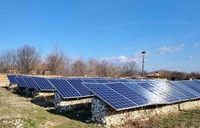 |
 Municipalities: Chirpan, Bratya Daskalovi, Brezovo, Panagyurishte, and Parvomay Municipalities: Chirpan, Bratya Daskalovi, Brezovo, Panagyurishte, and Parvomay
Total area: about 40 decares of owned land in the regions of Plovdiv and Stara Zagora, 29 installed PV plants, each with a capacity of 29,700 Wp, 3 additional properties with development potential
|
 |
 Sofia Region Sofia Region
- Active production facility
- 3100 sq. m of production, warehouse, and administrative space
- Separate showroom
- Suitable for furniture manufacturing or other light industry
- Excellent accessibility and infrastructure
- Quick commissioning / immediate production
- Potential for optimization and expansion
|
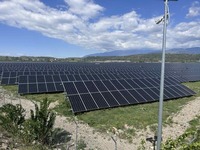 |
 Blagoevgrad Blagoevgrad
111 decares of owned land (in two adjacent plots of 55 decares each) at the entrance of the city from "Struma" highway
|
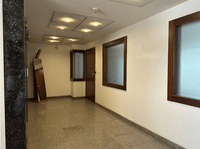 |
 Sofia Center Sofia Center
500 sq.m, functionally distributed between open space area, private offices, meeting room, server room, and restroom
|
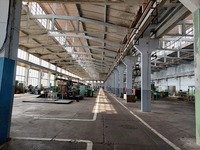 |
 Pleven Region Pleven Region
Total area 34 decares, 2 halls (total area 8510 sq.m) and admin. building (3 floors, GFA 2217 sq.m), operating business, good location, cranes for loading and unloading (lifting capacity 2x1 t, 3, 5, and 12 t), electrical connection - 110/20 kV with two underground 20 kV power lines, substation
|
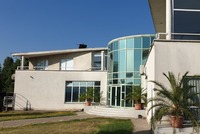 |
 Sofia Sofia
Operating enterprise with excellent financial results, 14.6 decares total area with excellent location, 3 halls (total area 1600 sq.m and height 11 m), cranes for loading and unloading activities (lifting capacity 13 t), admin. building (360 sq.m), warehouses and active store
|
|
|
Bulgarian Industrial Association
|
|  |
|
World
|
|  |
 |
Europe |
 |
Bulgaria is in third place in the European Union in terms of newly installed battery energy storage capacity in 2025, becoming one of the fastest growing markets in Europe. In just one year, the country achieved growth exceeding 1,100 percent, according to the annual report on the EU energy storage market, published by the European Solar Association (SolarPower Europe), based on data from the Association for Electricity Generation, Storage and Trading (APSTE). From around 200 MWh of installed capacity in 2024, Bulgaria reached nearly 2,500 MWh by the end of 2025. The expectations are that this year the capacity will be increased four to five times, with over 10,000 MWh of batteries currently being built in the country, financed under the National Recovery and Resilience Plan (NRRP). The development in Bulgaria comes against the backdrop of a record year for the European Union, in which over 27 gigawatt-hours of new batteries were installed, or 45 percent more than in the previous year. Bulgaria ranks third after Germany and Italy, with a market share of 9 percent in 2025. The total energy storage capacity in Europe is already ten times larger than in 2021. Analyses by the European Solar Association indicate that by 2030 this capacity must increase tenfold again to ensure the stability of electricity systems and the accelerated transition to clean energy. Source: BTA
 |
America |
 |
Global business bankruptcies are expected to increase by 2.8 percent in 2026, according to data and analysis from global credit insurer Coface. According to Coface's forecast, there will be an apparent stabilization of company bankruptcies in 2026 amid a gradual easing of financing costs. However, this is underpinned by continued instability, particularly in the construction, chemical and textile sectors. Coface warns that even a 25 basis point increase in business lending rates would be enough to reverse the trend. In 2026, bankruptcies are expected to increase by around 2 percent in France and the United Kingdom, in line with the dynamics of new business creation. In the United States, growth of 4 percent is forecast, due to vulnerable sectors and the effect of new trade policies and tariffs. Germany is forecast to increase by 1%, amid weak private activity despite significant government stimulus. Italy is expected to report a 2% decline in insolvencies, mainly due to the declining number of active companies, and Spain – a 3% decline, supported by an improved macroeconomic environment. In the Netherlands, a 4% increase is forecast, reflecting a gradual return to pre-pandemic levels. Coface notes that after three years of sustained growth, 2026 could bring a temporary lull, supported by lower interest rates and easier credit conditions. However, stabilization remains fragile due to high corporate debt, shrinking margins and tensions in the most vulnerable sectors. Regionally, Coface's analysis shows different trends. North America will continue to be under pressure, while Canada is expected to report a 5% decline in insolvencies after a prolonged period of growth. In the Asia-Pacific region, Japan is forecast to grow by 7 percent due to high interest rates and structural weaknesses, while Australia is forecast to grow slightly by 0.5 percent, reaching a plateau after a strong post-pandemic normalization. The analysis shows that the key risk remains corporate sensitivity to the cost of credit. A 25 basis point increase could lead to a further acceleration of global defaults to 4–5 percent, with European economies and sectors with limited debt servicing capacity being hit hardest. Source: BTA
 |
Asia |
 |
Hong Kong is set to record double-digit growth in both exports and imports of goods in 2025, with exports reaching a record high, KMG said. Total exports of goods rose 15.4% year-on-year, while imports rose 15.5%. This resulted in a trade deficit of HK$446 billion (about US$57 billion). According to an official estimate, the future development of goods trade will be supported by the moderate recovery of the global economy, strengthened economic and trade ties with new markets, as well as strong global demand for electronic products based on artificial intelligence. Source: 24 chasa 
|
|
Indexes of Stock Exchanges
29.01.2026 |
| Dow Jones Industrial |
| 48 830.00 |
(-137.00) |
| Nasdaq Composite |
| 23 865.10 |
(-172.13) |
Commodity exchanges
29.01.2026 |
|---|
| |
Commodity |
Price |
|
| Light crude ($US/bbl.) | 64.43 |
| Heating oil ($US/gal.) | 2.4699 |
| Natural gas ($US/mmbtu) | 3.8068 |
| Unleaded gas ($US/gal.) | 1.9217 |
| Gold ($US/Troy Oz.) | 5 217.96 |
| Silver ($US/Troy Oz.) | 111.64 |
| Platinum ($US/Troy Oz.) | 2 510.95 |
| Hogs (cents/lb.) | 94.62 |
| Live cattle (cents/lb.) | 23 716.20 |
|
|
 |
The city of the Roman legions |
 |

The huge ancient military camp Nove, situated over an area of 250 decares, 4 kilometers away from Svishtov, is examined since 1959. The camp has been established in the year AD 45 by the order of the Roman emperor Claudius and as many of the settlements in Bulgaria is situated on the spot of a Thracian village. The first inhabitants here are from the Neolith – 3,000 – 2,600 BC Marcus Licinius Crassus conquered the Thracian in this region around AD 30. In AD 69 here was settled the I Italian Legion sent by the time of Emperor Trajanus to protect the borders of the Roman Empire from the barbarian invasions. The camp is one of the few that form the outer defense ring at the Danube (the Danube limes) that stopped the invasion of the Dacia Province to the nowadays Bulgarian lands. The camp has been huge with its thick fortress walls. At which in the beginning were wooden towers replaced by rock embrasures. Thanks to a won PHARE project in 2005 a tourist center was created near the ancient fortress. The archaeological site is perfect for culture tourism. There is an exposition of the finds of the Bulgarian-Polish expeditions since 1970 until present days, as well as new paths around the Roman village.
Location
|
Archive
Business Industry Capital |
|

 Last Issue
Last Issue

 Subscribe NOW!
Subscribe NOW!

 Analyses
Analyses

 Discover Bulgaria
Discover Bulgaria
 Български
Български

 Archive
Archive
 Last Issue
Last Issue

 Subscribe NOW!
Subscribe NOW!

 Analyses
Analyses

 Discover Bulgaria
Discover Bulgaria
 Български
Български

 Archive
Archive